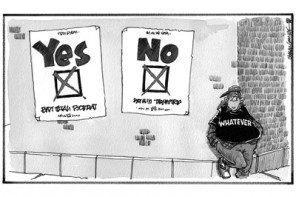The global refugee crisis of 2015 is indeed an unprecedented one considering its level of intensity. It would not be inappropriate to call this a ‘man-made’ humanitarian crisis. The crisis mainly occurred due to the narrowly defined political interests of the major powers. The world, in fact, did not witness such a massive influx of refugees from war-torn countries, i.e. Syria, Iraq, Afghanistan and elsewhere, in decades. The crisis has caused human casualties, economic losses and much more. Against this backdrop, this write-up attempts to investigate two pertinent questions: What are the root causes behind the contemporary global refugee crisis? And what can be done to address such a crisis in the days to come? But before addressing these questions, it is important to clarify the definitional aspect of ‘Refugee’.
Who is a Refugee?
Although the term ‘refugee’ has become a household word in the discourse of politics, international relations, and in development studies, it is ‘ambiguous’ and has given rise to ‘protracted controversies’ (Zolberg et al. 1989). Simply put, a refugee is a person who takes refuge in another country for fears of persecution or threat to life. The 1951 Refugee Convention defines a refugee as someone who ‘owing to a well-founded fear of being persecuted for reasons of race, religion, nationality, membership of a particular social group or political opinion, is outside the country of his nationality, and is unable to, or owing to such fear, is unwilling to avail himself of the protection of that country’.
Globally, one out of every 122 people is now either a refugee, internally displaced or seeking asylum. The number of global refugee population is estimated to be approximately 14.4 million. The US Committee for Refugees and Immigrants estimates that about 60 million people are displaced around the world right now, a figure higher than the estimated 50 million people left displaced at the conclusion of Second World War. In a recently released report of UN it is argued that at the end of 2014, the number of forcibly displaced people rose to 59.5 million, compared with 51.2 million a year earlier and 37.5 million a decade ago. Regarding the 2015 global refugee crisis, almost four million refugees are from war-torn Syria alone while a further 7.6 million are internally displaced, according to the UN. The next biggest refugee source countries are Afghanistan (2.59 million) and Somalia (1.1 million).
Root Causes of the Refugee Crisis
There might be a number of reasons or explanations behind the present global refugee crisis. But I think it is the ‘negative aspect of politics’, whether national or international, that is the root cause of current global refugee crisis, as such type of politics prioritizes narrowly defined short-term [political] interests of few over long-term interests of millions. The case of Afghanistan, Iraq or Syria clearly demonstrates this. War, conflict and its drastic consequences drive the people to flee from their home countries and take refuge in another country. And this is also recognized by International Law as it states that people have the right to leave any country, including their own, if their basic human necessities and life are in danger. In fact, little has been done to end the four-year civil war in Syria. Consequently 250,000 people have been killed in Syria, one million injured, half the country’s children no longer attend school and millions of people have fled Syria and have taken refuge in neighbouring countries.
This prolonged war is one of the major drivers of the current refugee crisis. Due to such narrowly defined political interests, the plight of millions of refugees has largely been overlooked by the international community. UN refugee Chief Antonio Guterres contends, ‘Unfortunately only when the poor enter the halls of the rich, do the rich notice that the poor exist. Until we had this massive movement into Europe, there was no recognition in the developed world of how serious this crisis was,’ (cited in Charbonneau 2015). Melissa Fleming, UNHCR spokesperson, argues that the global response to combat the refugee crisis has been minimal, as she points out, ‘Political leadership to stop and prevent conflicts is missing in action’.
As the number of refugees globally have surged to the highest levels in history, it has also become much harder for refugees to enter developed countries, particularly in Europe. In this context, European Agency for Fundamental Rights contends that ‘The possibilities for people in need of protection to legally enter and stay in an EU member states are very limited’ (2015:2). Refugees from war-torn countries faced obstacles in obtaining visas to enter Europe, including those who could easily afford plane tickets to Europe and were likely to be successful in their asylum claims (International Rescue Committee 2015:5). Reportedly, Schengen area countries granted over 30,000 visas to Syrians in 2010, while in 2013, the number was almost zero (ibid).
The other two tools in bringing refugees in Europe are humanitarian admission and resettlement, though these tools are limitedly used by the EU as a whole in the case of the current refugee crisis. For example, the EU member states have taken in only just over 44,000 Syrians since 2013 through resettlement and humanitarian admission, with Germany taking the vast majority: 35,000 (ibid). Therefore, the legal process of entering Europe has been closed for refugees. In this context, International Rescue Committee, in its report, writes that ‘Refugees are left with no option but to take extraordinary dangerous illegal journey by sea to Greece and Italy. Smugglers may be abusive, but without them, or safe and legal alternatives, refugees would suffer and die in countries of origin.’ (2015:6)
International politics also plays a role in the usage of the terms ‘refugee crisis’ and ‘migrant crisis’. In fact, using ‘refugee’ implies the legal obligations of the states to provide protection for those refugees. Hence, it is observed that from the influential global media to policymakers, most prefer using the term ‘migrant’ rather than ‘refugee’. But if one analyzes the defining features of refugee and the characteristics of the current influx, one needs to define them as ‘refugees’. In this context, the UNHCR points out that ‘most people arriving would likely qualify as refugees’. 92 percent of people arriving in Greece are fleeing war or conflict in their home country, and ‘recognising this as a refugee crisis is not just a matter of semantic: while states are legally obliged to respect and protect the rights of all human beings within their jurisdiction, they have particular legal obligations to refugees’ (International Rescue Committee 2015:5). Thus, with regard to the current refugee crisis, it is argued that ‘European states are obligated to protect refugees. There are, however, massive implementation gaps, and there is no effective system of practical cooperation and sharing of responsibility’ (ibid). And, therefore, the plight of the millions of refugees just worsened.
What can be done?
Though, apparently in theory every human being is equal, in reality it is not the same as ‘location matters’ in international politics. It is unfortunate that the world waited far too long to respond to the refugee crisis. If the vulnerable people had been from the global north instead of the global south, it could be expected that the world would act earlier and take appropriate measures.
The burden of the refugee influx from these war-torn counties needs to be shared by the states who are directly or indirectly involved in the war. For instance, the Syrian crisis which commenced in spring of 2011, was prolonged mainly due to the clash of interests of the major powers, namely US, EU, China, Russia and India. As a result, the world witnessed the ‘worst humanitarian disaster since the end of the Cold War’. To avert future refugee crises, the world needs to root out/address the causes of this refugee crisis, i.e. bring the war to a halt.
The world needs a better system of international refugee governance. And this requires a strong and effective refugee regime. Alexander Betts, director of the Refugee Studies Center at Oxford University contends, ‘There’s a real risk that we’re seeing the unravelling of the refugee regime that was created in the aftermath of the Second World War on the basis of cooperation and reciprocity,’ (quoted in Witte 2015). In fact, the 2015 global refugee crisis demonstrates the poor governance in addressing the refugee crisis. Notably, the vast majority of the world’s refugees are hosted by developing states rather than developed ones. Turkey alone hosts more than 1.9 million refugees — more than any other state in the world. In the present refugee crisis, the role of the developed world to address such humanitarian crises is negligible and there is a lack of cooperation and coordination among states. The states need to avoid short-term parochial interests and instead aim for long-term cooperation between the so-called developed and developing world. Better refugee governance is vital to ensure orderly migration which can lead to a more peaceful world.
Source:
- Charbonneau, Louis (2015). U.N. says world waited too long to act on refugee crisis, Reuters, September 27.
- Gibney, Mark (2010). Global Refugee Crisis: A Reference Handbook, Oxford: ABC Cilo.
- International Rescue Committee (2015). Europe’s Refugee Crisis, September. London.
- European Agency for Fundamental Rights (2015). Legal entry channels to the EU for persons in need of international protection: a toolbox, February.
- Witte, Griff (2015). New U.N. report says world’s refugee crisis is worse than anyone expected, The Washington Post, June 18.
- Zolberg, Aristide R., Astri Suhrke, and Sergio Aguayo (1989). Escape from Violence: Conflict and the Refugee Crisis in the Developing World, New York: Oxford University Press.
The writer is Lecturer in the Department of International Relations at the University of Rajshahi.






